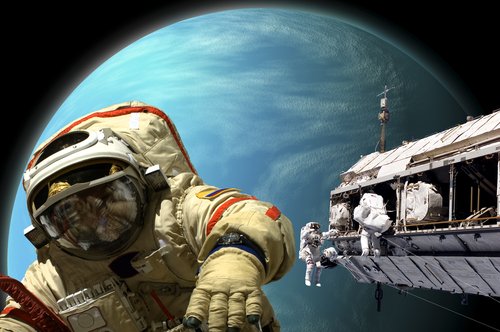Brussels (Brussels Morning) Two Russian cosmonauts stepped outside the confines of the International Space Station (ISS) on Wednesday, to clear the way for the planned arrival of a new Russian laboratory at the station, the latest module scheduled to be added to the venerable orbital habitat.
The spacewalk is the first for both Oleg Novitsky and Pyotr Dubrov, who arrived on the ISS in April. Novitsky and Dubrov suited up and started work on the Pirs docking compartment, an aged Russian module which will be disposed of later this year by detaching it from the station together with a Progress automated cargo ship, and set on course to burn up in the atmosphere.
The retirement of the Pirs is the final on-station preparation for the arrival of the Nauka Multipurpose Laboratory Module (MLM), scheduled to arrive later this year as the final Russian laboratory to merge with the 22-year old station.
Russia’s space agency Roscosmos faced more than a decade of obstacles and challenges in preparing the Nauka module for space. The launch was initially planned for 2007, but a series of production and testing problems caused delays which lasted years. While awaiting launch, warranties expired on several of its components, causing further delays as components had to be replaced and re-tested.
The planned launch, scheduled for 15 July this year, is close to the warranty expiration of a number of its critical systems, and a delayed launch could easily cause further delays or complete cancellation of the mission.
Despite rising tensions between Western nations and Russia, scientific cooperation on the ISS continues uninterrupted, as the EU, the US and Russia move ahead pragmatically, keeping space exploration separate from more earth-bound daily political differences, although there are hints that even this cooperation could be nearing its end.
In April this year, deputy Prime Minister Yury Borisov said that Russia must withdraw from the station by 2025 at the latest, citing concerns over the overall state of the station. “We can’t risk the lives of our cosmonauts”, he said. “The structure and the metal are getting old, and it can lead to irreversible consequences, to catastrophe”. Roscosmos is reportedly working on its own, independent space station to be launched in 2025.
Despite ongoing cooperation with the European Space Agency (ESA) in the upcoming Mars mission, Russia is turning towards China increasingly as a key ally in space exploration, as the two plan to initiate a joint Moon exploration push.




